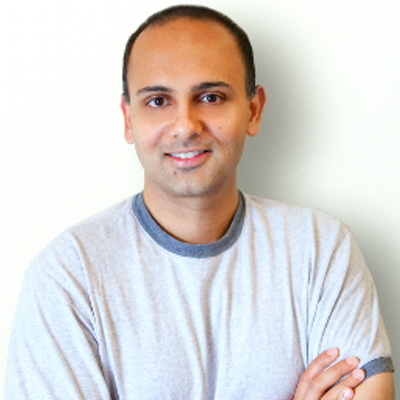Why We Are Driving Toward Data-Driven Healthcare
December 29, 2015
Google Maps users now have more information at their disposal about street than most doctors do for their patients. But the healthcare industry is starting to adopt consumer-inspired data technologies, which could change everything from how medical device software updates are performed.
Brian Buntz
|
Elemental Machines CEO Sridhar Iyengar sees big potential in sensors and machine learning in the life sciences field. He will be chairing a session related to the subject at MD&M West in Anaheim in February. |
The consumer technology sector is being upended by clever ways to process and leverage data. Consider, for instance, Google Maps, which, gives consumers free access to contextual information about geographical regions, including weather, traffic and satellite data, information on construction zones, and panoramas of stitched-together street images from locations around the world. In 2015, Google announced plans to integrate maps of outdoor air quality as well. Not content to let Google have all the fun, Toyota announced plans to use car-based cameras and GPS sensors to help create crowdsourced continually-updated images of roads.
Not bad, considering just a few years ago, Internet maps were typically Mapquest routes that people would print off before jumping in the car.
While data-driven healthcare is slowly becoming a reality, medical technology is still at the Mapquest stage. If you go to the doctor and have bloodwork done, a doctor will hand you a print out of the results at a cost of anywhere from $10 to $10,000.
One of the main reasons for the discrepancy between how data is used in healthcare versus in the consumer sector is regulation and the general secretive atmosphere of the healthcare sector, says Sridhar Iyengar, co-founder of Misfit (which was recently acquired by Fossil for $260 million), Agamatrix, and the CEO of Elemental Machines. While regulation is absolutely critical, in some sense, the way medical device companies react to it has impeded them from taking advantage of some of the amazing technological features and safety nets that exist in the consumer world. "If you look at consumer Web applications like Uber or Airbnb, none of them are written in isolation," Iyengar says.
Iyengar also recommends that medical device companies look for innovation from BrainTree, a backend transaction plugin now owned by PayPal. The reliable plugin, which is used by firms ranging from Airbnb to Uber, can automatically detect, analyze, and address stalled transactions.
"By contrast, if you are a medical device developer, you can very rarely use an API (application program interface) and get away with it," Iyengar says. "More often than not, when you make medical devices, you are responsible for the technology from top to bottom. But when there is a problem, you don't have a large scale network that would enable you to have an immediate alarm system like BrainTree has. Everything is vertical and siloed."
There is progress being made in the medical device space, however, Iyengar says, pointing to companies like Dexcom (San Diego, CA), which offers consumer-inspired software updates for its continuous-glucose monitoring systems.
In years to come, we will likely see more technologies such as this entering into the medical device sector, although the details of how FDA intends to regulate them is still something of an open question, although the agency has released guidance document on the subject.
"There is stuff we can do in the consumer world that would work for medical devices but it might have a 1% risk," Iyengar says. "Sometimes we are forgetting those technologies because of that 1% of risk."
Iyengar is optimistic about how FDA will regulate such consumer-technology-inspired features, stating that the agency has already made significant progress in how it regulates mobile medical device applications in the past five years.
About the Author(s)
You May Also Like



